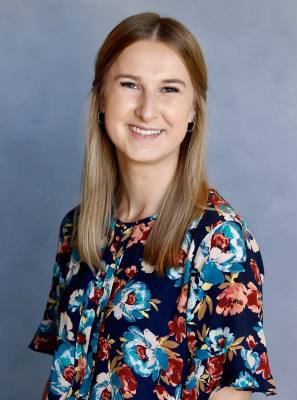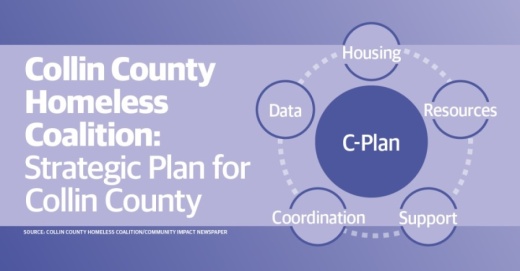The need for this step has only been exacerbated by the coronavirus pandemic, said Terry Hockenbrough, the coalition's president and the director of business and community outreach at Collin College.
"There is a new reality that we are seeing. And it's only begun," Hockenbrough said. "We're done talking ... It is time for action."
At the summit, the coalition presented its action plan, dubbed the C-Plan. This strategic plan will help the coalition and the varying organizations in Collin County working to prevent homelessness focus their efforts and define big-picture goals in both the short- and long-term, officials said.
The five areas of focus include housing, data, coordination, support and resources. These mirror the vision points of the Metro Dallas Homeless Alliance's D-One Plan, which was released in the latter half of 2019. This similarity is deliberate, said Rick Grady, a member of the coalition's leadership team and Plano City Council member.
"That is done intentionally so that when you ... put them together, it makes a unified document in a unified approach to homelessness [and] to the continuum of care," Grady said.
By having this approach in two large counties across the region, there is additional supporting data for important requests, like federal Department of Housing and Urban Development funds, he said. And as the region become more unified, this also creates a coordinated path forward, he said.
Keynote speakers Jason Saving, communications and outreach senior economist of the Federal Reserve Bank of Dallas, and Alan Graham, CEO of Loaves and Fishes and Community First! Village in Austin, shared supporting data and anecdotes before the plan's release at the end of the summit, including Saving's study of the rising costs in the housing market and additional stressors related to delayed but not relieved rent payments and Graham's experience with a coordinated approach to lessening the impacts of homelessness with the Community First! Village in Austin, a neighborhood designed for people coming out of chronic homelessness.
Next steps for the organization include creating committees for each of the five areas. Support and housing focuses will have four committees, while all other areas expect to have two, the plan shows. These two areas also have the largest amount of goals outlined in the plan, including creating enhanced access to rapid rehousing and permanent supportive housing units, working with cities to develop long-term goals for affordable housing, expanding Collin County Resource Centers, and the creation of comprehensive plans for homeless prevention, diversion and outreach.
Members of the Collin County Homeless Coalition were charged with studying the C-Plan goals, sharing it with organizations and people who might be able to help and returning ready to start taking action in the closing of the summit.
"We can talk all we want ... but people can't live in words," Grady said. "People can live in structure. ... When we solve that, we can go to the people that build facilities, people that have land, people that are in the political or governmental areas ... so we can develop the longterm solutions."
A full recording of the three-hour summit can be viewed here, and the C-Plan's short- and long-term goals can be viewed on the Collin County Homeless Coalition's webpage.





